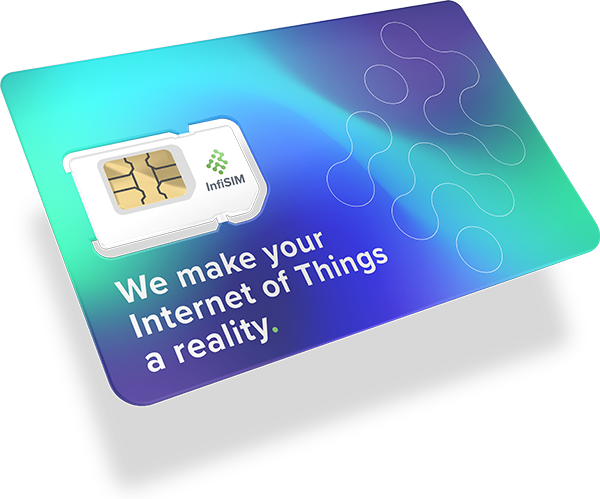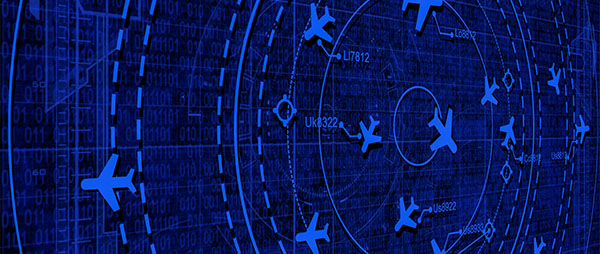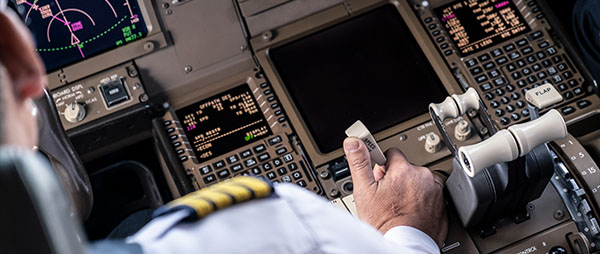IoT is shaping the future of aviation technology.
IoT in aerospace & aviation
Enhancing aviation with IoT technology
The integration of the Internet of Things (IoT) with the aerospace industry is ushering in a wave of transformative advancements. Merging IoT technologies within aerospace not only augments operational efficiency and safety, it fosters data-driven decision-making in real-time. The integration is advancing smart aviation by improving maintenance, increasing security, and optimising operations in civilian aerospace and defence.
The impact of IoT in aerospace
IoT plays a crucial role in the aviation sector, supporting important functions such as flight operations, aircraft health monitoring, and in-flight connectivity. The seamless flow of information among interconnected smart devices leads to improved real-time decision-making and operational efficiency, making it a major step forward in the modernisation of aviation.
Benefits of IoT in aerospace
 Enhancing safety & security
Enhancing safety & security

IoT technologies contribute to the elevation of safety and security measures through real-time monitoring and data analytics. With sensors and devices interconnected across aircraft and ground systems, real-time monitoring of critical operational parameters is achieved. This real-time insight enables timely interventions, drastically reducing the risks associated with unforeseen operational anomalies.
 Improving operational efficiency
Improving operational efficiency

The automation and data-driven insights fostered by IoT enhance operational protocols, reducing redundancies and augmenting efficiency. IoT technologies provide a framework for seamless communication between different operational units, streamlining processes, and ensuring optimal resource utilisation. This, in turn, contributes to higher operational efficiency and productivity.
 Reducing maintenance costs
Reducing maintenance costs

Predictive maintenance, empowered by IoT, minimises unscheduled downtime and reduces associated costs. By continuously monitoring the health and performance of aircraft components, IoT systems can predict potential failures before they occur. This early detection allows for scheduled maintenance, thus avoiding wider and more expensive issues and extending the lifespan of aircraft components.
 Real-time data analytics
Real-time data analytics

IoT facilitates the real-time analysis of crucial operational data, enabling prompt decision-making and timely interventions. Real-time data analysis helps airlines monitor crucial metrics to ensure their flights are safe and on-time.
IoT solutions in aerospace
Challenges & solutions
IoT sensors & devices in aviation
IoT sensors are the linchpin for data collection and real-time monitoring within aircraft. They monitor a myriad of parameters including engine performance, structural health, environmental conditions, and fuel efficiency. These sensors generate invaluable data that, when analysed, provide insights into the aircraft’s operational status and safety. Moreover, the amalgamation of sensor data within cloud computing facilitates enhanced data analytics, unlocking new avenues for operational improvements.
Communication protocols for IoT devices
Establishing robust communication protocols for IoT devices is pivotal in ensuring seamless data transmission and operational integrity. Protocols like MQTT, CoAP, and HTTP/HTTPS are commonly used in IoT ecosystems within aerospace. These protocols are tailored to ensure reliable communication between connected devices and backend systems, ensuring that critical data is transmitted accurately and quickly.
Sensor data collection & analysis
The collection and analysis of sensor data are fundamental for informed decision-making and enhanced operational efficiency. Advanced analytics tools and machine learning algorithms are employed to sift through the voluminous data generated by IoT sensors. This analysis provides helpful information for making informed decisions, proactive maintenance, and other benefits that contribute to operational excellence.
Businesses implementing IoT within aerospace
IoT security in aerospace
IoT standards & regulations in aviation
IoT integration in air traffic management
Future trends in IoT for aerospace
Why use InfiSIM for your IoT SIMs?
InfiSIM are one of the most reputable IoT SIM card providers with hundreds of thousands of SIMs deployed globally. We have UK-based support and fantastic reviews, so you can be sure that your business is in safe hands.





